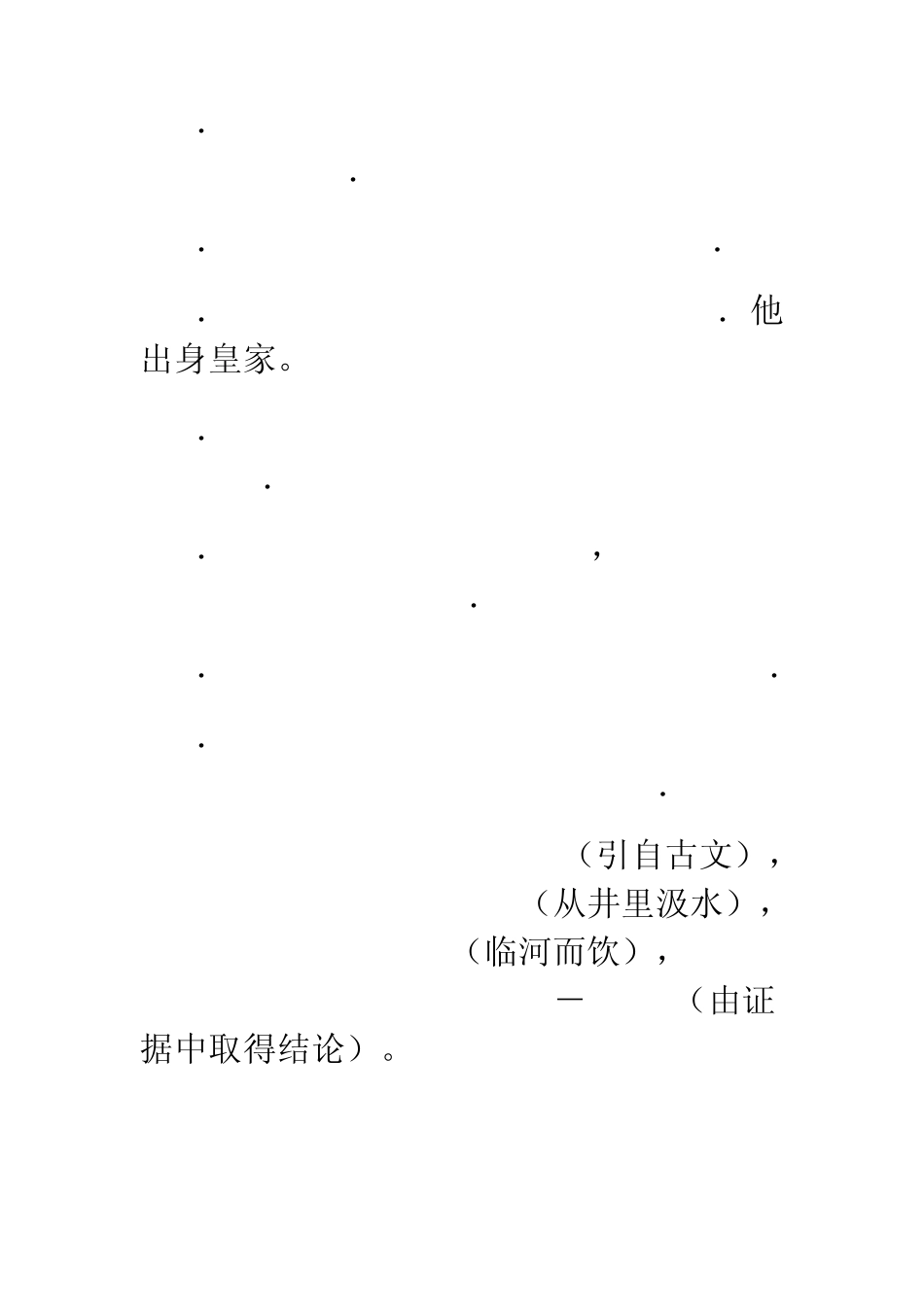§4.4 动词词组 1.动词与表示根源和来源的介词连用 (1)from come from(起源于、出生于、来自),rise from(起源于),derive from(起源于),arise from(发生于、由„而产生),spring from(来自于、崛起于),emerge from(出现于),result from(产生于、起源于),stem from(发生于、滋长于),emanate from(流出于、出生于),grow from(由„而生),originate from(起源于),proceed from (发生于、由„发出),be derived from(临摹、出身于),be descended from(为„之后裔、系出„„),copy from(抄录自),translate from (翻译自),quote from(引用自),adapt from(改编自)。 a.I have risen from the ranks to a major. b.Her money came from a rich uncle. c.Serious damage may arise from carelessness. d.These spring from tiny seeds. e.He is sprung from royal blood.他出身皇家。 f.Something has resulted from my efforts. g.According to the Bible,we are all descended from Adam. h.This picture is a copy from Raphael. i.Thousands of English words are derived from/derive from Latin. quote from the classics(引自古文),draw water from a well(从井里汲水),drink from a river(临河而饮),draw conclusions from the evi-deuce(由证据中取得结论)。 ①originate(来自),当来源是事物时,用from或in皆可;当来源为人时,用from或with皆可。 ②come from有两个含义:一是表示“籍贯(出生于何处)”=come of;一是表示“来自何处”。其区别在于动词时态的不同。当表示“籍贯”时,动时用现在时,因籍贯是永远不变的。当表示“来自何处”时为叙述过去的事情,故用过去时或现在完成时。试比较: a.Where do you come from?你籍贯何处? (以现在时构成问句) I come from Beijing.我是北京出生的。 b.Where did/have you come from?你来自何处? I came/have come from Beijing.我从北京来。 (不一定是北京人) (2)of ①ask(要求、请求、询问) ask的对象为人时,可用ask sb.或 ask of sb.;ask sth.of sb.表示“请求某人做某事、或询问某人某事”。 a.May I ask a favour of y...


